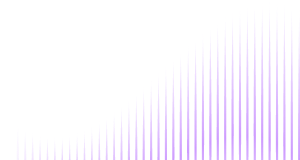
Servicio Nacional de Medicina Legal y Ciencias Forenses

Revolutionary approach to document investigation
Advanced examination of all possible documents
Comprehensive vendor support
The Ecuadorian National Service of Legal Medicine and Forensic Sciences (Servicio Nacional de Medicina Legal y Ciencias Forenses) is a government entity dedicated to providing technical and scientific investigation services for judicial enquiries throughout the country. One of its branches - the Documentology section of the National Directorate of Police Scientific Technical Investigation (la sección de Documentología de la Dirección Nacional de Investigación Técnico Científica Policial) - is responsible for police investigation with the help of forensic equipment and experts to get the most precise and comprehensive evidence of a crime.

Upon equipping our forensic laboratories with Regula’s devices and databases, we finally managed to reach the required high level of technology to perform any kind of document investigation - quickly, conveniently, and efficiently. We are happy with the technical features of the Regula 4308 comparator, with the quality of their databases (which are constantly updated), and with their support and involvement. Not only did Regula provide its products, but the company also organized training for our experts to help them use the device to the fullest and get insights on security features of different documents.
—CRISTIAN ERNESTO SALGADO ORTEGA, TECHNICAL COORDINATOR AT THE NATIONAL SERVICE OF LEGAL MEDICINE AND FORENSIC SCIENCES OF ECUADOR.

Challenge
The main goal of the National Service of Legal Medicine and Forensic Sciences of Ecuador was to upgrade its forensic laboratories with state-of-the-art equipment. Among these labs was the Documentology section of the National Directorate of Police Scientific Technical Investigation.
After using some devices for over a decade, the organization felt the lack of modern technology, which it badly needed for making reports on the authenticity of IDs, banknotes, signatures, documents, and so on. On top of this, the public entity was not satisfied with its current equipment and vendor support.
The devices didn’t have the features the laboratories required. Also, the staff lacked some knowledge of effectively using the equipment due to poor support and feedback from the vendor. So, when the National Service of Legal Medicine and Forensic Sciences of Ecuador started pursuing their goal to modernize their forensic labs, they initiated market research to choose a new provider.
Solution
The choice was made in favor of Regula forensic devices. Together with its partner INSETK, Regula equipped police forensic laboratories with its unrivaled Regula 4308 dual-video spectral comparator.
Regula 4308 is designed for advanced examination of all possible documents, as well as art and collectibles. It allows forensic experts to thoroughly investigate document printing methods and surface relief, as well as overlapping objects, such as signatures or stamps. For efficient verification of IDs, this dual-video spectral comparator has modules for reading MRZs, RFID chips, hidden images (IPI), and 1D and 2D barcodes.
With over 30 types of light sources, more than 20 light filters, and 320x magnification, Regula 4308 helps to investigate even the tiniest details. Moreover, its unique motorized oblique lighting system allows changing the light source's angle of incidence and thus permits wider opportunities for examining the microrelief of a document in the visible, infrared, and UV spectrum range.
The device is equipped with two high-resolution cameras (14 and 12 MP), which facilitates and speeds up document examination as there is no need to to turn the papers over. Also, this feature is indispensable when examining a rare or antique document that requires more care and attention. Thanks to the side flaps and widened internal space, all examined objects can be conveniently placed inside, even thick volumes. The extended field of view and advanced image stitching algorithms make it easy to obtain a whole image of an A4 page.
To get the most of the newest devices, special training was held for the forensic laboratory experts. It was delivered by Juan Manuel Padrón Primo, a renowned forensic document examiner and Regula's long-term partner. He highlighted the capabilities of the device and trained the forensic labs’ staff to use it effectively. “It goes without saying that equipment plays a key role in forensic laboratories. Regula 4308 revolutionizes the approach to document examination: it speeds up the analysis while enhancing its quality and outcome. And it’s the first time in Latin America that a single device covers all the major issues of optical analysis of inks and writing to highlight possible illegal alterations in documents via inconsistencies in pigment, traces, luminescence in infrared light and so on,” comments Padrón Primo.
Apart from the devices, the National Service of Legal Medicine and Forensic Sciences of Ecuador obtained Regula’s information reference systems (IRS) on documents and banknotes. These are comprehensive databases of a vast majority of travel documents, banknotes, driver's licenses, and vehicle registration certificates, with detailed descriptions and images of the documents captured in different light sources. This reference system is a perfect comprehensive information assistant for forensic experts who rely on this data to examine the security features of each document or banknote more efficiently.
Result
As of the moment, the National Service of Legal Medicine and Forensic Sciences of Ecuador has equipped police forensic laboratories in two major cities: Quito and Guayaquil. On average, each of these two working stations for document and artifact investigation is used by 20 experts.
Since their experience with Regula devices has been positive, the National Service of Legal Medicine and Forensic Sciences of Ecuador is considering continuing to upgrade forensic laboratories in the country with Regula hardware in the coming years.
“As a governmental organization responsible for forensic research on the national level, we are proud and satisfied with the result we got on the modernization of our forensic labs,” comments Cristian Ernesto Salgado Ortega, Technical Coordinator at the National Service of Legal Medicine and Forensic Sciences of Ecuador.





